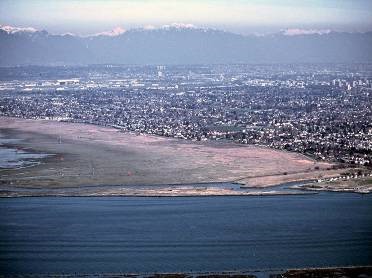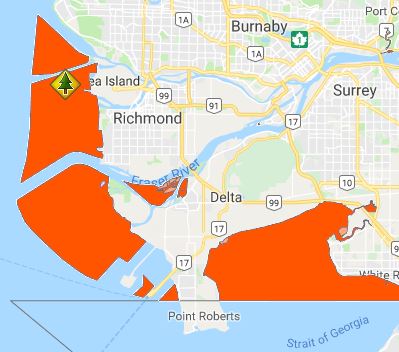Sturgeon Bank Wildlife Management Area
Date Designated: October 8, 1998
Purpose: Conservation of critical, internationally significant habitat for year-round, migrating and wintering waterfowl populations, along with important fish habitat.
Size: 5,152 hectares
Region: South Coast
Nature and culture
Fish and Wildlife: At least 47 species of shorebirds and significant percentages of the total regional populations of Great Blue Herons, Trumpeter and Tundra Swans, Lesser Snow Geese and Dabbling Ducks utilize Sturgeon Banks. The WMA is also used by hundreds of thousands of migrating and wintering waterfowl, shorebirds and raptors each year. The entire delta comprises a vital link in the Pacific Flyway, serving as a major migration staging area and supporting the largest wintering waterbird concentrations in Canada. The Boundary Bay, Sturgeon Bank and South Arm Marshes Wildlife Management Areas have been designated as Western Hemisphere Shorebird Reserve Network sites. All five species of Pacific salmon use the area within the WMA for passage, food, shelter and acclimatizing to salt water. At least 27 species of non-salmonid fish species also occur here, including Starry Flounder, Three-spined Stickleback, Herring, and Shiner Perch.
Physiography, Climate and Vegetation: The WMA is comprised primarily of nearshore and intertidal brackish marsh, mudflat, and open water.
Planning and management
Information on management direction and possible restrictions on visitor activities are available from the Conservation Lands regional contacts.
Image
The Sturgeon Bank WMA is situated in the City of Richmond at the delta front of the Fraser River estuary.


